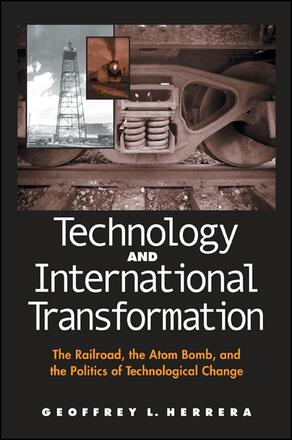
Technology and International Transformation
The Railroad, the Atom Bomb, and the Politics of Technological Change
Alternative formats available from:
Examines the interrelation between technology and international politics since the nineteenth century.
Description
During an era in which the pace of technological change is unrelenting, understanding how international politics both shapes and is shaped by technology is crucial. Drawing on international relations theory, historical sociology, and the history of technology, Geoffrey L. Herrera offers an ambitious, theoretically sophisticated, and historically rich examination of the interrelation between technology and international politics. He explores the development of the railroad in the nineteenth century and the atomic bomb in the twentieth century to show that technologies do not stand apart from, but are intimately related to, even defined by, international politics.
Geoffrey L. Herrera is Assistant Professor of Political Science at Temple University.